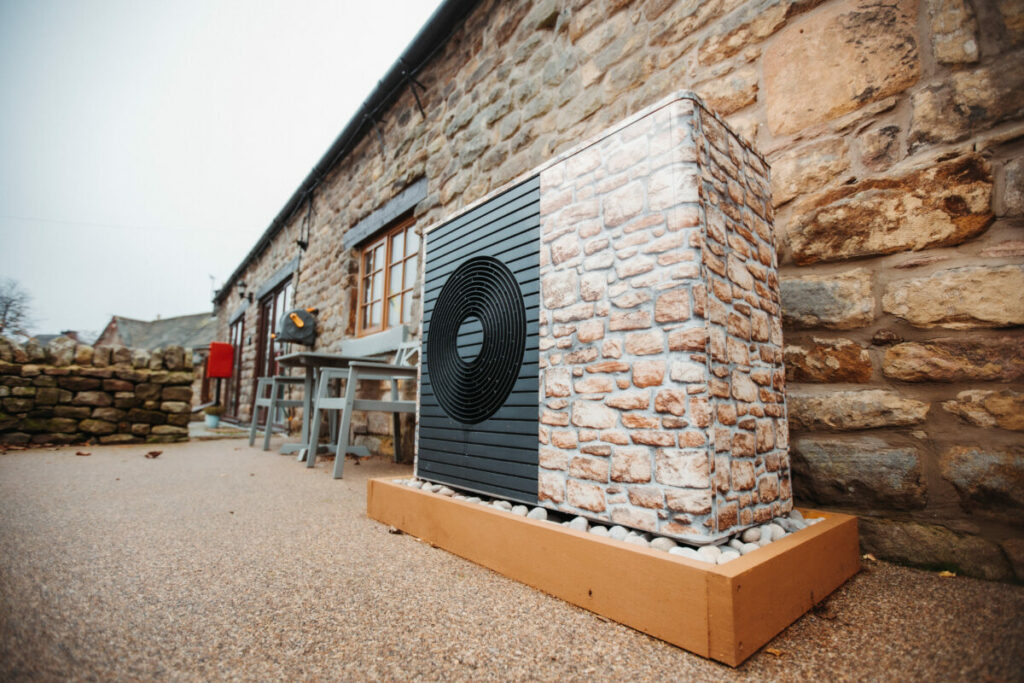This week (18 December), the UK government has committed a £1.5 billion funding boost to the Boiler Upgrade Scheme (BUS).
Introduced in 2022, the BUS offers upfront capital grants for households and small businesses looking to replace their fossil fuel heating system with a heat pump or biomass boiler.
Initially this grant consisted of a £5,000 commitment for those looking to install an air source heat pump (ASHP) or biomass boiler, and £6,000 for a ground source heat pump (GSHP).
Upon its launch, the scheme received £450 million in funding that was set to last until 2025. However, this cut-off was extended to 2028 as part of the Powering Up Britain announcement made in March.
The individual grants were later increased too, as September saw Prime Minister Rishi Sunak reveal that both ground and air source heats pump grants will increase to £7,500 from 23 October 2023, while biomass boiler grants saw no change.
According to the Department for Energy Security and Net Zero (DESNZ), BUS applications have jumped by 57% since this grant uplift came into effect.
Long-term considerations
Although welcomed by the energy industry, concerns have been raised over the long-term effects the grant increase could have on the number of BUS vouchers available.
Ian Rippin, CEO of the Microgeneration Certification Scheme (MCS), pointed out that 10,000 grants were paid in the first year of the scheme, totalling an investment of over £50 million. This would leave only £150 million allocated to the scheme per year until 2028.
This means that, with the original BUS budget, the increase to individual grants will only support 3% of the government’s target of 600,000 annual installations by 2028.
Increasing overall grant funding will ensure the effectiveness of the BUS in incentivising heat pump uptake in the UK.
“This welcome increase in funding will enable more households to take on these measures,” said Energy UK’s deputy director of policy, Charles Wood.
“These announcements will not only give additional certainty to consumers and the market, but will directly support delivery of the government’s targets for addressing fuel poverty and delivering national energy security.”
Mark Sommerfield, deputy director of policy at the Association for Renewable Energy and Clean Technology (REA) added that the BUS has now become a “more attractive offer that actively enables households to invest in heat pumps.”
“This will drive up deployment rates, which remain well behind what is needed to keep the UK aligned to heat decarbonisation target,” continued Sommerfeld, adding that the government should extend the grant uplift to biomass boilers in order to support “the right low-carbon technology for the right situation.”
A ‘new approach to net zero’
The BUS funding increase forms part of a £6 billion package to help households and businesses cut their energy bills, as the UK government demonstrates its “new approach to net zero.”
Announced during this year’s Autumn Statement, the £6 billion investment was allocated yesterday (18 December) and included:
- £1.25 billion towards the Social Housing Decarbonisation Fund, to support the retrofit or insulation of up to 140,000 social homes
- £485 million towards the Green Heat Network Fund to help up to 60,000 homes and buildings access new heat networks
- £45 million towards the Heat Network Efficiency Scheme to upgrade roughly 100 existing heat networks
- £225 million towards the Industrial Energy Transformation Fund to help businesses transition to a low-carbon future
“Cutting energy bills is my top priority. Today’s funding will help those who are most in need and keep around a million more families warm during winter,” said energy secretary Claire Coutinho.
“Everyone deserves to live in a warm, energy efficient home. We have already made excellent progress with nearly 50% of properties in England now having an Energy Performance Certificate of C – up from just 14% in 2010.
“This funding will help us go even further and improve 200,000 cold, low income and social homes.”






